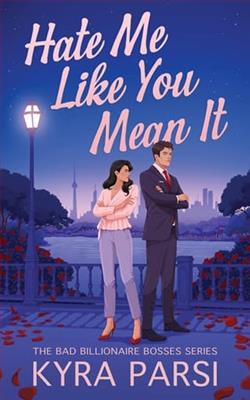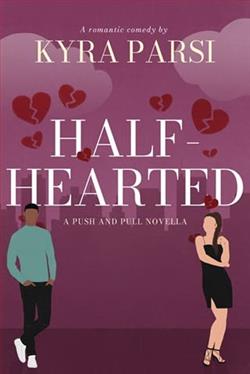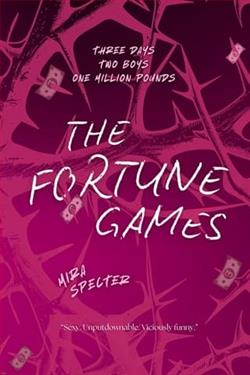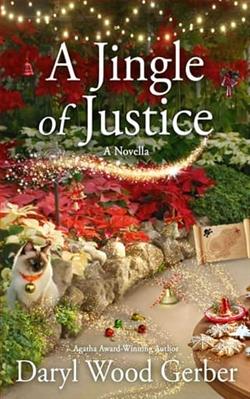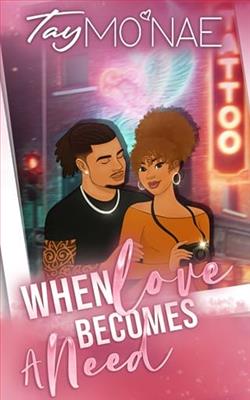Page 100 of The MacGregor's Lady
The next shot wasn’t lining up—the price one paid for succumbing to the lure of sinking two balls at once. “I have not been invited to Boston. I have, in fact, been refused entry to the port. Hannah would protect even me.”
Ian swore, ostensibly at the gun. “Then I can go to bloody Boston, or Gil or Con can go.”
“You all have children to raise, or on the way, and you’d have no more authority in Boston over Hannah’s mother or half brothers than I would, and therein lies the difficulty.”
Ian threaded screws through the inlays on the gun’s handle and tightened them in alternate applications of a small screwdriver. “You can’t just reive her family out from under the man’s bloody nose? He’d not wrest them away from an earl’s keep if you could get them here in one piece.”
On the next shot the cue ball rolled slowly, slowly across the table, tipping into a pocket by a whisker, which at least allowed a man to do a little swearing of his own.
“It’s good to hear you using the Gaelic,” Ian said, finishing with the screwdriver.
“Gaelic is a good language for cursing in. I’ve considered inviting Hannah’s family here, asked my man for his thoughts on the matter, and received no response. Now I doubt my message even got through.”
“Inviting. Such an earl you’ve become.” Ian’s taunt was without heat, and all the more annoying as a result.
“One doesn’t force a woman to marry against her will without becoming the very thing that woman loathes most in the world. Why do you bother cleaning that old pistol when the servants could do it?”
The gun was back in one piece, looking substantial and well cared for in Ian’s hand. He wiped it down with the dirty cloth, which somehow did in fact polish the metal. “The woman loves you. A little loathing won’t change that, particularly when you’ve given her a child or two.”
“And I love you, Ian, but I would rather not leaven my fraternal affection with loathing. If you can’t leave this topic alone, then my preferences will not carry the day.”
Ian smiled and sighted down the gun barrel at a portrait of some old fellow in tartan and hunting boots. “You love her too. A sorrier pair I have never seen.”
Yes, Asher did love Hannah. The knowledge was unassailable, a fact of Asher’s bones and organs and his very mind. “You’d stand up with me, if there were a wedding? Even if there were a wedding merely to give her my name?”
Ian set the gun aside and rose, coming to study the arrangement of balls on the table. “Why’d you set the cue ball down there? It leaves you not one decent shot.”
“I’m not playing a game. One needs to practice the impossible shots.”
“I’ll stand up with you, and so will Gil, Con, Mary Fran, and even that snippy English bastard Spathfoy. If you love Hannah Cooper, then we’re standing up with her too.” He set the cue ball down two inches from its original location, then scooped up his antique gun and left.
One did need to practice the impossible shots, except, by moving the ball two inches, Ian had changed the entire field of play, such that the impossible had become, in several different ways, the possible.
Twenty
“If grief had a landscape, it would be these Highlands.”
Hannah tucked herself more snugly to Asher’s side and tried to pretend the sun was not sinking closer to the rugged hills around them. This was no more successful than pretending a week had not already passed since her arrival at Balfour House, a week in which she’d made many such fanciful pronouncements.
Asher shifted, as if eluding a pebble beneath a triple thickness of tartan wool. “Why do you say that?”
“Many reasons. These are not high mountains, not compared to what you’ve seen in Canada, but they have a forbidding quality. And yet, we’ve walked them.” She shaded her eyes and pointed to the highest summit. “We ate scones and drank whiskey up there, three days ago.”
They’d eaten scones and drank whiskey on many a blanket, making more picnic memories in a week than most couples collected in two decades of marriage. They’d ridden out together, fished the River Dee, tramped the woods, and stayed up late playing cards as an excuse to talk far into the night.
Ian and Augusta made no pretense of chaperoning them, which was fortunate. In the wee hours of the morning, and on the high hills and in the forests, Asher had told Hannah of his years in Canada, and he’d told her his family knew little of what had happened there. She’d argued with him over that, until that argument, like so many others, had ended in a spate of kissing.
Lying on the wool blankets under the afternoon sun, he laced their fingers and laid Hannah’s palm over his heart. “Your point is that grief can be surmounted.”
She’d been trying to say that the sadness she felt when she stared at the calendar had a wildness to it, a passion that had certainly eluded her before her journey across the ocean.
“I don’t know if it can be surmounted, but people dwell here, and they love it. You love it, despite the winters, the cold, the loneliness. People have died for this land.”
He shifted again, turning her, too, so they were spooned together beneath the wide blue sky, his chest blanketing her back. “There will be no dying of broken hearts, Hannah. You and I are not that kind of people. We will be dignified, like these mountains. We will endure.”
They hadn’t made love, not since they’d arrived in Edinburgh, and that had broken Hannah’s heart more than anything else. And yet, it was good that she could not see his face, or he hers. “I’m not carrying.”
He petted her hair and gathered her closer. “You’re sure?”








